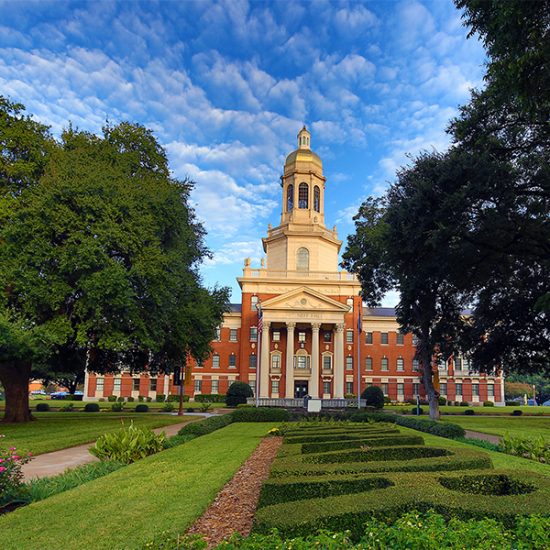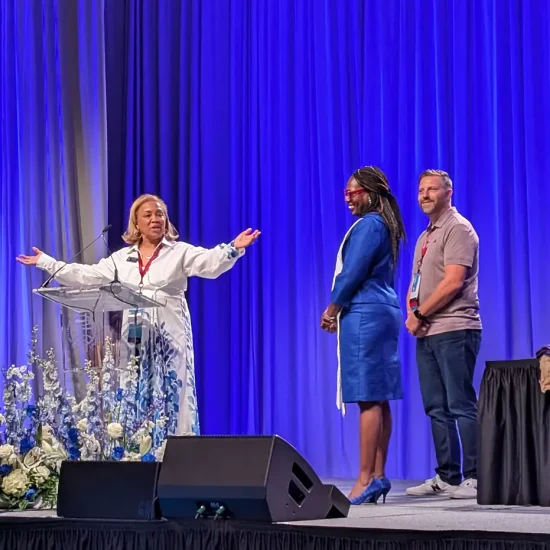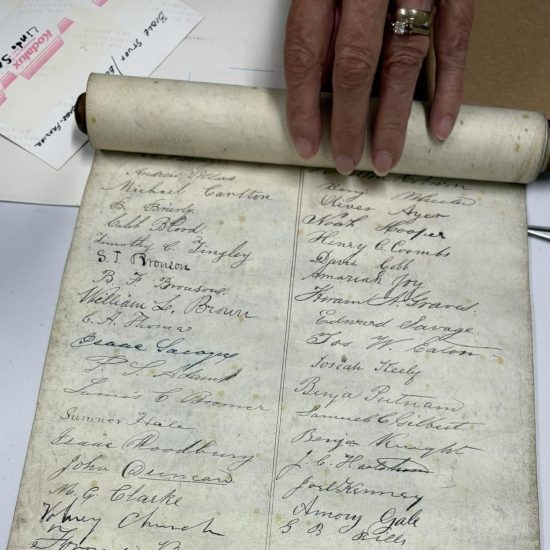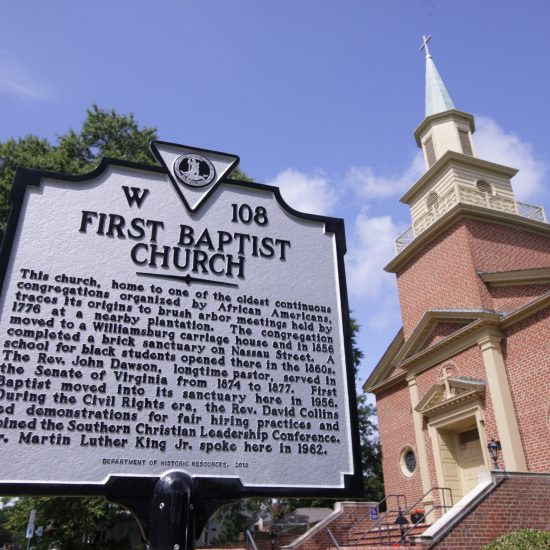AUSTIN, Texas (ABP) – The Alliance of Baptists adopted a statement of support April 14 for the family of Trayvon Martin and others who have experienced similar losses.
Citing an article from the Alliance covenant affirming “the calling of God to all peoples to repentance and faith, reconciliation and hope, social and economic justice,” the statement expressed grief at the death of the Florida teenager widely viewed as a case of racial profiling.
“We express outrage at the delays in the investigation and initial lack of concern by the authorities about the killing,” members at the Alliance’s 25th anniversary convocation April 13-15 at Highland Park Baptist Church in Austin. The statement further recognized “the part we play in continued systemic racial injustice and violence.”
“This needless death and countless others like it call us to action,” the statement continued. “We stand with Trayvon Martin’s family in their grief and suffering and all who have been devastated by a similar loss. We commit ourselves to thoughtful and prayerful discernment about the actions we should take to foster reconciliation, justice, safety and recognition of the sacred worth of all. We ask God for the strength and courage to discard our propensity for apathy, to claim our prophetic voice, and to live out our faith in action.”
“Our eyes have been opened again,” the statement concluded. “May Trayvon’s death disturb us so that we cannot forget or be silent.”
The Alliance also endorsed efforts to reduce gun violence including those by Heeding God’s Call, a faith-based grassroots movement to halt “straw buying,” persons who buy large quantities of weapons in the Southwest and transfer them to Mexican drug gangs, and the Coalition to Stop Gun Violence, which supports keeping firearms out of the hands of dangerous criminals and the mentally ill. Another statement protesting violence against transgender persons cited a number of newspaper articles about a rash of attacks on transgender persons in Washington, D.C.
Other statements called for the release of political prisoners in Cuba, opposed torture, advocated just and humane immigration reform and endorsed the Faithful Budget Campaign, an interfaith coalition formed to ensure that political discussions about the budget deficit and tax policy do not overlook the needs of the poor.
The Alliance was formed in 1987 by Southern Baptists tired of opposing a takeover of their denomination by conservatives and interested in creating something new. Other moderates wanted to make another run at recapturing the convention’s presidency and reverse the “conservative resurgence” effort to move the denomination to the right by using the office’s appointive powers. Also, some weren’t sold on the part of the Alliance covenant affirming that women should be allowed to serve as pastors. After the larger and more centrist Cooperative Baptist Fellowship formed in 1991, the two organizations discussed merger but opted to remain separate, although many individuals and churches participate in both.
During their 25-year journey, the small but progressive Alliance found fellow travelers in other countries, forming partnerships with like-minded Baptists in Cuba, Canada, Brazil and Zimbabwe, and in ecumenical partners including the United Church of Christ and National Council of Churches.
Five new churches joined the Alliance during the quadranscentennial year, bringing the total to 135. Two were churches seeking a new denominational home after being expelled from other Baptist bodies.
Texas Baptists withdrew fellowship from Royal Lane Baptist Church in Dallas after a newspaper article described the congregation as “coming out of the closet” and appointing deacons who were openly gay. “The Baptist General Convention of Texas voted in May 2010 to no longer accept funds from your church, but we’ll be glad to,” Paula Dempsey, minister for partnership relations, said in welcoming Royal Lane members attending their first Alliance convocation.
Another, in Owensboro, Ky., got kicked out its local Southern Baptist association last August for allowing a chapter of Parents, Families and Friends of Lesbians and Gays to meet in its church building. Instead of obeying the association’s demand that they cut ties with PFLAG, Journey Fellowship adopted a statement welcoming “all persons regardless of age, race, ethnicity, sexual orientation, gender identity, possessions, education, mental ability or physical ability.”
“They were kicked out, and they’ve lost members too,” Dempsey said. “They lost about 75 percent of their financial support. Even members who supported their stand for inclusion found it difficult to stay connected because of the stigma they faced in their community.”
Two of the new churches, Reconciliation Table Church in Plainfield, Ill., and New Revelation Community Church in Oakland, Calif., started out non-denominational but decided to align with the Alliance because of shared values. The fifth, First Baptist Church of Dayton, Ohio, is a member of American Baptist Churches USA.
Alliance churches are in 28 states and the District of Columbia. They are most common in North Carolina, which lists 21 member churches, followed by Virginia (17), Maryland (12) and Texas (10). Next year’s convocation is scheduled April 5-7 at Northside Baptist Church in Atlanta.
-30-
Bob Allen is managing editor of Associated Baptist Press.






